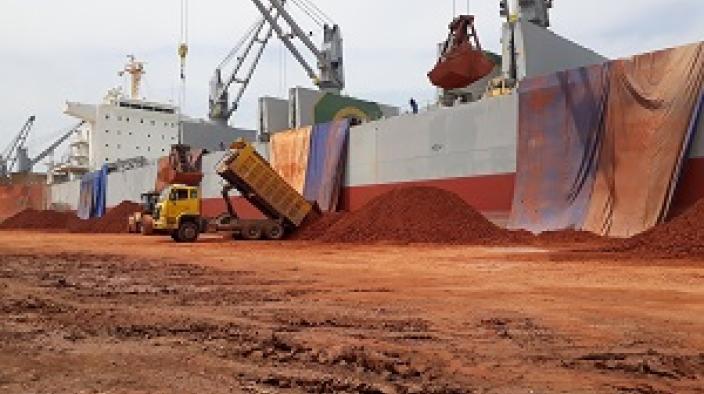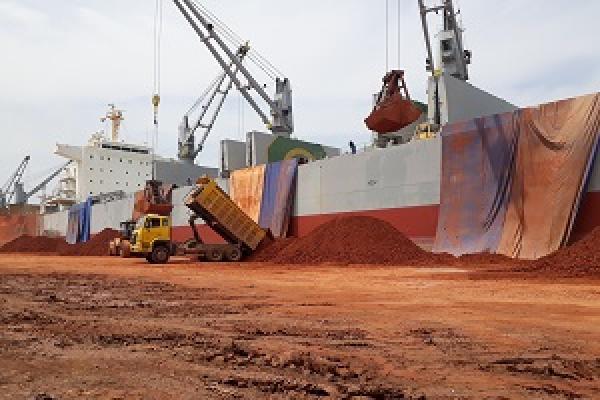
Steamship Mutual
Published: February 03, 2022
Introduction
Intelligence recently received from Roxburgh in Boffa, advises of a possible issue for vessels visiting Guinea where there has been strike action at a bauxite mining facility based in Boffa. This dispute has been ongoing for several weeks and shippers may subsequently present older supplies of bauxite for shipment that have potentially been exposed to wet conditions.
Alert
The Club wishes to remind Members of the dangers of liquefaction associated with the carriage of Bauxite, and that certificates showing the actual moisture content and transportable moisture limit are essential in assessing the hazard of the cargo that is presented for shipment. Appropriate certificates should be included in the information that shippers present to the Master in line with the shippers’ obligations set out in the IMSBC Code.
Liquefaction
Liquefaction may take place when cargo, even when it does not obviously appear wet, has moisture between particles. Ship movement may compact cargo and release moisture and therefore cause liquefaction. This generates a free surface effect leading to a loss of stability and cargo shift, a situation that can develop rapidly with little or no time to take corrective action.
If the Master is concerned about the quality of the cargo, or if there is any inconsistency with the shipper’s declaration, then loading should be stopped until the cargo properties can be verified.
Casualties
The loss of the vessel Bulk Jupiter due to suspected liquefaction of bauxite loaded out of Malaysia in early 2015 resulted in 18 fatalities. The vessel loaded 46,400 tonnes of bauxite which was declared as a Group C cargo under the IMSBC Code. Information from the Flag State (Bahamas) casualty investigation determined that loss of the vessel was due to liquefaction of the cargo on board, which consequently led to a loss of stability. The investigation identified that samples of the bauxite loaded onto the Bulk Jupiter were being taken by an independent survey company. The results only became available after the incident and had not been made available to the Master. The samples were found to contain in excess of 20% water, the transportable moisture limit (TML) of the cargo having been declared as 10%.
Amendments made to the IMSBC Code came into force in January 2021, with an additional schedule for Bauxite Fines that has been categorised as a group A cargo. Therefore, care should be taken when loading bauxite fines to ensure that the actual moisture content is below the transportable moisture limit, otherwise the cargo may liquefy.
Action
Members are reminded to remain vigilant if loading this cargo when they call at ports in Guinea.
Thanks to the Roxburgh Group for this information on the situation in Boffa.



